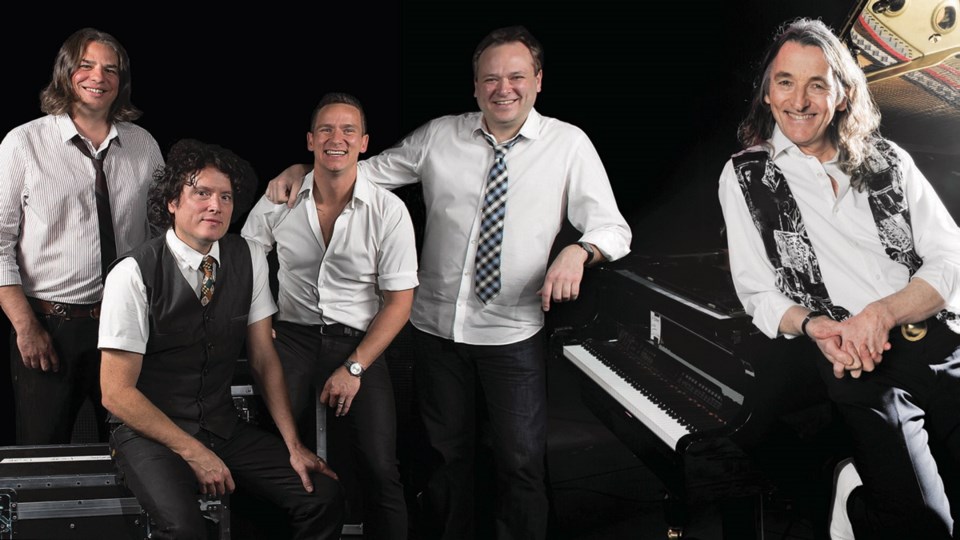PREVIEW
What: Roger Hodgson
Where: Royal Theatre, 805 Broughton St.
When: Nov. 22 (sold out) and Nov. 29
Tickets: $70.50 (250-386-6121)
Legally he must bill himself as “Roger Hodgson, formerly of Supertramp” for his upcoming Royal Theatre shows.
But for many fans, the former Supertramper remains the heart and soul of the U.K. prog-rock band that surged to stardom in the 1970s.
It was Hodgson, notable for his high vocal timbre, who wrote and sang the majority of Supertramp’s big hits: The Logical Song, School, Give a Little Bit, Dreamer, Take the Long Way Home, Breakfast in America and It’s Raining Again. The group’s other songwriter and co-frontman, Rick Davies, wrote and sang Bloody Well Right, Crime of the Century and Goodbye Stranger.
Hodgson left Supertramp back in 1983, at the height of the group’s popularity. Davies continued to tour as the leader of a Hodgson-less Supertramp (this band played for 6,000 at Save-on-Foods Memorial Centre five years ago).
These days, Davies, following a diagnosis of bone-marrow cancer in 2015, is no longer on the road. So Hodgson and his current band are about as close to the real thing as devotees can get. His Tuesday show in Victoria is sold-out; however, there are tickets for the Nov. 29 concert.
Now 66 and living in California, Hodgson said he embarked on this tour after a six-month hiatus.
“I was wondering what my voice would be like coming back. To tell you the truth, it’s stronger than ever. I’m amazed at myself,” said the singer-songwriter, sounding happy and relaxed during a soundcheck in Regina this week.
Formed in 1969, Supertramp stood out for the irresistible catchiness of its melodies, the skill of the musicians and the wit of the lyrics. The songs had a distinctively British sense of irony; for example, from Hodgson’s Breakfast in America: “Take a look at my girlfriend/she’s the only one I got/ Not much of a girlfriend/never seem to get a lot.”
Somehow the songs of Supertramp (never a particularly fashionable band despite its popularity) have transcended the shifting winds of musical trends. As Hodgson notes: “We withstood punk, disco, you name it.”
He believes the authenticity and vulnerability of the lyrics have much to do with this.
“I never wrote songs for anyone else. Music was my refuge. It was where I went to be alone to express all the questions I had going on inside me. The longing for love, longing to know who God was. All really deep stuff.”
Raised near Oxford, Hodgson received his first guitar when he was 12 years old. After finishing school he played in several bands, including a short-lived group, Argosy, with Elton John and drummer Nigel Olsson. An ad in Melody Maker led him to Rick Davies and Supertramp.
The new group’s first couple of albums stalled. But Supertramp hit paydirt in 1974 with Crime of the Century, which yielded the hits Dreamer and Bloody Well Right. Before that, the band had “four or five years of struggling,” sometimes finding it difficult even to cover the cost of driving from one venue to the next, Hodgson said.
Their most commercially successful album, Breakfast in America (1979), sold more than 20 million copies. Supertramp became a super-band. For the Breakfast in America tour, they trucked 52 tons of gear, including 16 kilometres of cable, $5 million worth of equipment and a 40-man road crew.
Through it all, Hodgson was a reluctant celebrity.
“I never felt like a rock star. I think the whole ‘star’ stigma, if you like, confused me … all the mega-stardom Supertramp had confused me more than anything else,” he said.
By the early 1980s, Hodgson had moved his family from Los Angeles, where the entire band had relocated from Britain, to northern California. He began writing solo material.
After officially leaving Supertramp in 1983, Hodgson decided to focus on raising his children, with music-making taking second place. He did this for 15 years, finally returning to the stage as a solo act in 1998 (the tour took him to Victoria’s now-defunct House of Blues with his antique pump organ in tow).
“When I left Supertramp, it was to get my compass back. My inner compass,” Hodgson recalled.
Like many aging pop stars entering Phase 2 of their careers, he declares this go-round the best. Yet on the phone, Hodgson sounds as if he really means it. He loves his band. And he says it’s much more fun to play for fans (and yes, he does play all the hits) with the chart-topping years well behind him.
“I’m older and wiser and more confident. With Supertramp, I was very shy, an introvert and insecure,” he said.
“There’s a feeling of joy. There’s a feeling of upliftment.”



